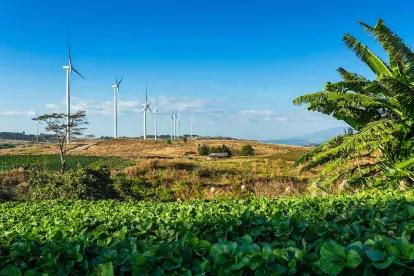Services Signal Intent to Roll Back Trump Administration Changes to ESA Rules
On June 4, 2021, the U.S Fish and Wildlife Service (USFWS) and National Marine Fisheries Service (NMFS) (together, the Services) issued a press release announcing their plans to initiate a series of rulemakings in the coming months to revise, rescind, or reinstate Endangered Species Act (ESA) regulations finalized by the prior administration. The Services identified the five following ESA rulemakings:
-
Revise regulations for interagency cooperation. On August 27, 2019, the Services published a final rule revising the regulations governing ESA section 7 consultation. In part, this rule revised key terms regarding the identification of environmental baseline conditions, potential effects, and the level of causation and certainty required in the review of effects of an action on species and critical habitat. The rule also clarified what constitutes adverse modification of critical habitat and adopted deadlines for the completion of informal consultation. The Services now anticipate revising the definition of “effects of the action” and associated provisions, and are considering additional revisions.
-
Revise regulations for listing species and designating critical habitat. Also in 2019, the Services published a final rule revising the procedures for listing species and designating critical habitat. In part, this rule clarified the duration of the “foreseeable future” when determining whether to list a species as threatened, revised the procedures for designating critical habitat including clarifications regarding the treatment of unoccupied areas, and streamlined the process for delisting and reclassifying species. The Services currently anticipate revising the regulations to reinstate prior language stating that listing decisions are made “without reference to possible economic or other impacts of such determination,” and may make other revisions as well.
-
Rescind regulations that revised USFWS’s process for considering exclusions from critical habitat designations. On December 18, 2020, USFWS revised the process for considering whether to exclude areas from critical habitat designation under section 4(b)(2) of the ESA. In part, the rule clarified the scope of impacts that would be considered as part of the exclusion analysis, how those impacts would be weighted, and stated that an area would be excluded from critical habitat if the benefits of exclusion outweighed the benefits of inclusion unless the failure to designate would result in the extinction of the species. USFWS anticipates rescinding this regulation in its entirety, and reverting to the Services’ regulations at 50 C.F.R. § 424.19 and the joint 2016 policy on 4(b)(2) exclusions.
-
Rescind the regulatory definition of habitat. Also in December 2020, the Services promulgated a definition of “habitat” for the purposes of designating critical habitat under ESA section 4. In that rule, habitat was defined as “the abiotic and biotic setting that currently or periodically contains the resources and conditions necessary to support one or more life processes of a species.” The Services anticipate rescinding this definition of habitat, which would leave the term undefined in the regulations and increase uncertainty regarding the areas that may qualify as critical habitat.
-
Reinstate protections for species listed as threatened. In 2019 USFWS withdrew its “blanket 4(d) rule,” which automatically applied the ESA section 9 take prohibitions to threatened species, and adopted a threatened species-specific approach to applying the take prohibitions (similar to NMFS’s practice). USFWS anticipates reinstating the blanket 4(d) rule.
Federal Judge Stays Navajo Nation Clean Water Rule Lawsuit Against EPA
On June 24, 2021, U.S. Magistrate Judge George Fourratt granted the Environmental Protection Agency (EPA) and Army Corps of Engineers’ (Corps) unopposed motion to hold the briefing schedule in abeyance in the Navajo Nation’s lawsuit challenging the agency’s Trump-era rollback of the rule defining “waters of the United States” for purposes of the Clean Water Act (WOTUS Rule).
In January 20, the Navajo Nation asked a New Mexico federal judge for a summary judgment decision in Navajo Nation v. Wheeler, in which the tribe alleged that the EPA violated the Administrative Procedure Act by rescinding the Obama-era WOTUS Rule. Specifically, the Navajo Nation claimed the EPA violated treaty rights, ignored scientific evidence and circumvented proper channels by not seeking public input in reversing federal water protections for certain bodies of water. The inadequate water protections threaten the Navajo Nation’s water supplies, according to the lawsuit.
The lawsuit against the Trump EPA, the Corps, and then-EPA Administrator Andrew Wheeler is among many challenges against the Trump administration’s controversial rollback of Obama-era WOTUS Rule that expanded the scope of protected waters.
The court’s order was in partial response to EPA and the Corps’ request that the court hold the briefing schedule in abeyance and remand the WOTUS Rule to the agencies so they can pursue a new rulemaking reversing the changes that the Trump administration made to the definition of “waters of the United States.” The agencies also asked the court to dismiss the challenge to the WOTUS Rule and allow the Trump-era rule to stay in place during the rulemaking process under the Biden administration.
Judge Fourratt ordered that the EPA and the Corps’ obligation to respond to the motion for summary judgment, and to file any cross-motion, be held in abeyance until the presiding judge makes a decision on the agencies’ motion to remand the WOTUS Rule to the agencies. If the motion to remand is denied, the Court will convene the parties for a new briefing schedule.
FERC Establishes Office of Public Participation
On June 24, 2021, the Federal Energy Regulatory Commission (FERC or Commission) announced the formation of its Office of Public Participation (OPP), aimed at making it easier for members of the public that might be affected by agency actions to participate in Commission proceedings. The announcement marks FERC’s compliance with the congressional directive set forth in section 319 of the Federal Power Act following outreach efforts during which the Commission hosted six listening sessions, a full-day virtual Commissioner-led workshop, and a public comment period.
FERC’s plans are outlined in a report detailing the legal background of, and public feedback on, OPP. The office will be responsible for assisting members of the public who come forward and wish to participate in proceedings, and it will be required to do outreach to make sure members of the public affected by FERC projects are able to share their views.
OPP’s proposed functions include direct outreach and education, procedural assistance, program office coordination to improve existing FERC processes, and counsel to the Commission on intervenor funding. The report outlines the plans for a multi-year phase-in to start up the new office. By the end of fiscal year 2021, the Commission aims to hire the OPP Director and a Deputy. During fiscal year 2022, OPP’s initial operations will expand to provide support to the public on education, outreach, and assistance. OPP will also advise on an intervenor funding rulemaking. OPP expects to reach full operating capacity in fiscal year 2024.
Ninth Circuit Rules That Tribe Retains Sovereign Immunity in CWA Suit
The U.S. Court of Appeals for the Ninth Circuit (Ninth Circuit) on June 21 dismissed a lawsuit filed by an environmental group alleging that a hydroelectric project co-owned and co-operated by the Confederated Tribes of the Warm Springs Reservation of Oregon (Confederated Tribes) violated the CWA, ruling that the law did not take away the Tribes’ sovereign immunity.
In Deschutes River Alliance v. Portland General Electric Co., the environmental group was asking the Ninth Circuit to overturn a district court ruling that awarded summary judgment in favor of Portland General Electric Company (PGE) and the Confederated Tribes, claiming the district court erred in finding that the CWA’s water quality requirements allowed the Pelton Round Butte Hydroelectric Project to repeatedly exceed water quality standards.
The Pelton Round Butte Hydroelectric Project is a system of three dams spanning a 20-mile stretch of the Deschutes River. Deschutes River Alliance alleged that the project has worsened water quality by taking water from the surface of Lake Billy Chinook to attract fish migration, deviating from the pre-2009 practice of drawing water from the bottom of the lake. In 2018, U.S. District Judge Michael H. Simon ruled that the Confederated Tribes, which co-owned and co-operated the project with PGE, was a required party to the suit and that the CWA abrogated its sovereign immunity. Judge Simon wrote that the CWA, which allows civil suits against “persons,” pointed to Congress’ “clear and unequivocal waiver of tribal sovereign immunity.” The judge then ruled in favor of the Confederated Tribes and PGE, finding that the project does not violate its underlying CWA certificate every time it exceeds water quality standards.
Writing for Ninth Circuit panel, Circuit Judge William A. Fletcher stated the district court should not have reached the question of whether the hydroelectric project violated CWA in the first place because the statute does not contain a clear intent by Congress to subject tribes to suits without consent.
“We must be able to say with ‘perfect confidence that Congress meant to abrogate . . . sovereign immunity,’” wrote Judge Fletcher. “The text of the CWA does not provide the required ‘perfect confidence.’”
The district court judge therefore erroneously found that the Confederated Tribes (a single, federally recognized tribe by law) lost its immunity to suit, according to the Ninth Circuit, as it was not “unmistakably clear” that Congress intended to abrogate the immunity of Native American tribes from citizen suits under the CWA. This is in spite of the fact that tribes fall under the definition of “municipality,” which in turn falls under “persons” in CWA’s citizen suit provisions.
The National Congress of American Indians, Crow Tribe of Indians, Confederated Salish and Kootenai Tribes, Fort Belknap Indian Community, and Navajo Nation filed amicus briefs in support of the Confederate Tribes’ retained sovereign immunity argument.
The Ninth Circuit recently made a similar decision to protect tribal sovereign immunity, in a 2019 lawsuit involving the ESA. In Dine Citizens Versus Ruining our Environment v. Bureau of Indian Affairs, a group of tribal, regional, and national conservation organizations sued the Department of the Interior, claiming that agency actions reauthorizing coal mining activities on land reserved to the Navajo Nation violated the ESA and the National Environmental Policy Act (NEPA). The Navajo Transitional Energy Company (NTEC), a Navajo Nation-owned corporation that owns the mine, intervened, argued that it was a required party, that it could not be joined due to tribal sovereign immunity, and the lawsuit therefore could not proceed without it.
Affirming the lower court decision agreeing with NTEC, the Ninth Circuit reiterated that tribal sovereign immunity protects tribes from suit without express authorization by Congress or without consent from the tribe. This immunity extends to tribal corporations acting as an arm of the tribe, according to the Ninth Circuit. Because the tribe, a necessary party, could not be joined due to tribal immunity, the court dismissed the case.
The Ninth Circuit remanded the Deschutes River Alliance case to the district court to vacate the summary judgment, and to dismiss the case for failure to join the tribe to the suit.
Senate Introduces Hydro Tax Credit Bill
On June 24, Senators Maria Cantwell (D-WA) and Lisa Murkowski (R-AK) introduced the “Maintaining and Enhancing Hydroelectricity and River Restoration Act of 2021,” which is a re-worked amendment by Senator Cantwell previously offered during the Senate Finance Committee’s markup of the Clean Energy for America Act in May. The bill proposes to amend the Internal Revenue Code of 1986 to “support upgrades at existing hydroelectric dams and the removal of obsolete river obstructions to improve the health of the Nation’s rivers.” To achieve this, the bill would create an incentive tax credit of 30% with direct pay options for investment in hydropower such as qualified dam safety, environmental, and grid reliance enhancements placed in service during such taxable year. The tax credit would also encourage upgraded turbine technology, installation of improved environmental systems, etc. that would not otherwise be economically feasible. This bill represents Congress taking a step forward to make dam safety and hydropower infrastructure for the more than 90,000 dams in the United States a priority.
CEQ Extends Deadline for Agencies to Propose Revised NEPA Procedures
On June 29, the Council on Environmental Quality (CEQ) published in the Federal Register an interim final rule to extend that deadline for federal agencies to develop or revise proposed procedures for implementing the procedural provisions of NEPA by two years, from September 14, 2021 to September 14, 2023. CEQ explains that the additional time will avoid agencies wasting resources developing procedures based on the July 2020 rule, given the Biden Administration’s ongoing review and potential future repeal or amendment of the July 2020 rule, as well as address agency concerns with the inconsistency of the July 2020 rule with Biden’s E.O. 13990, Protecting Public Health and the Environment and Restoring Science to Tackle the Climate Crisis and E.O. 14008, Tackling the Climate Crisis at Home and Abroad. “Following this rulemaking, CEQ will initiate further rulemaking to propose amendments to the 2020 Rule to revise the NEPA implementing regulations to comply with the statute’s text and goals; provide regulatory certainty to stakeholders; promote better decision making consistent with NEPA’s statutory requirements; ensure appropriate coordination among Federal agencies, and State, Tribal, and local governments during the environmental review process; and meet environmental, climate change, and environmental justice objectives.”
Much of the interim rule is a discussion of CEQ’s justification for extending the deadline without first providing notice and comment. CEQ is, however, providing a 30-day period for comment on the extension and on CEQ’s bases for issuing the amendment as an interim final rule without first providing notice and comment. Comments are due by July 29, 2021.








 />i
/>i
